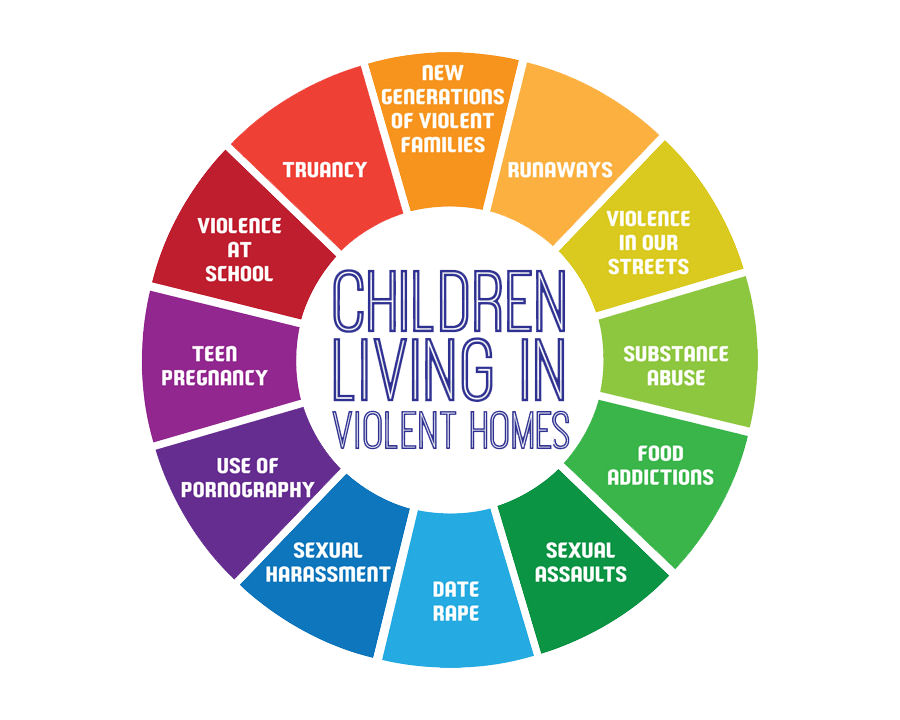Impact on Children

Children who grow up around domestic violence are affected,even if they are never directly abused. Sometimes they are assaulted when an abused partner throws things. Other times they to try to step between the batterer and the victim. They may become injured when trying to “protect” the abused parent from violence. And it is always emotionally damaging to witness psychological, emotional, and physical violence.
When young people live surrounded by fear, negative moods, family stress, and parental violence, there is a profound long-term impact. Research shows children who live with domestic violence often develop psychological, emotional, and behavioral problems.
The Center for Disease Control found that children who witness abuse are at greater risk of:
CHILDREN’S RESPONSES
Children may experience a range of feelings about living with abuse, even if they don’t say it out loud. Depending on their age, they may:
Did you experience childhood relationship violence?
Watch The Children Next Door to understand what Childhood Relationship Violence better
Source: https://cdv.org/tools-and-resources/the-children-next-door/
